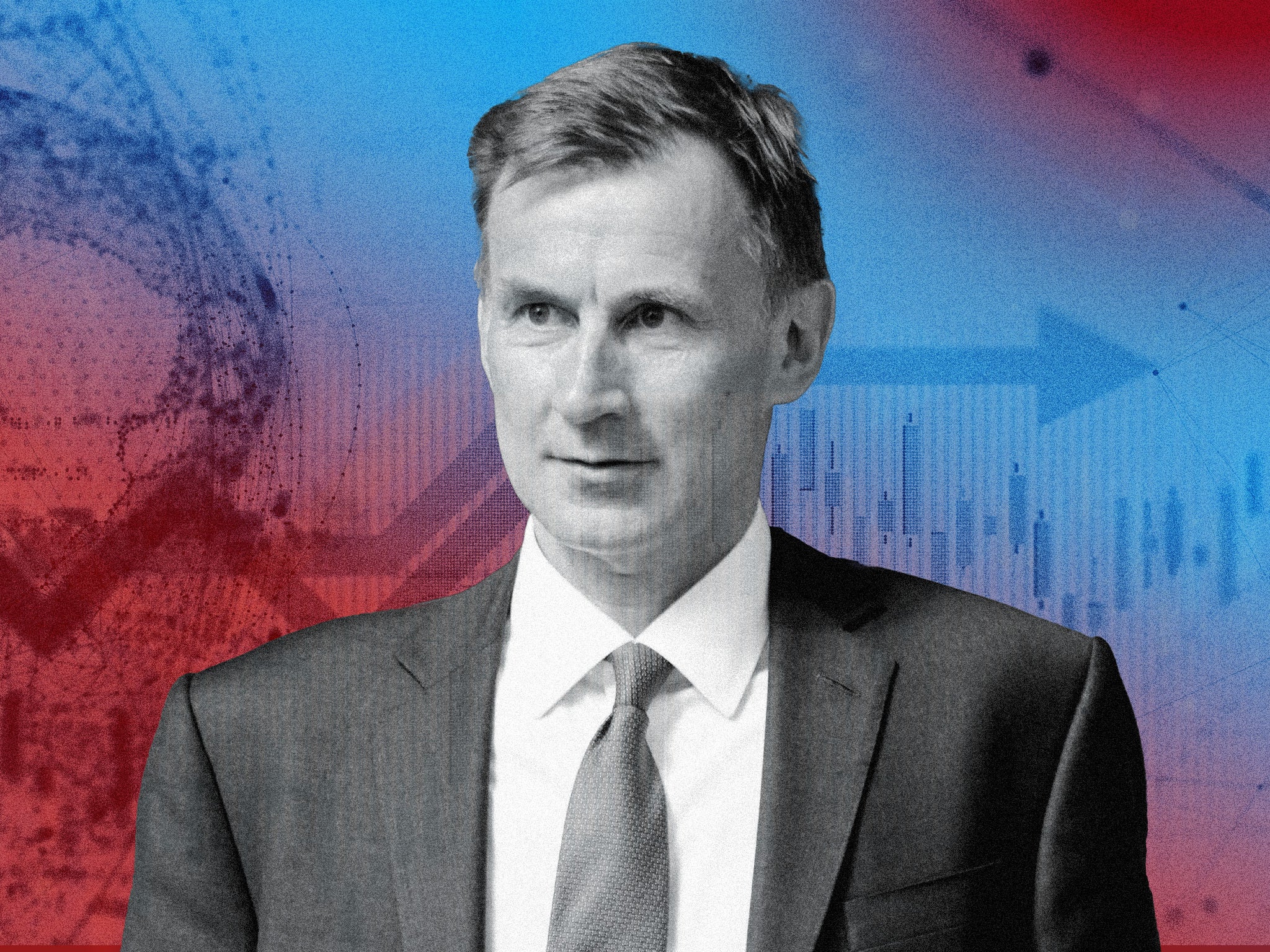Good news on wages, but Hunt still faces ‘runaway train’ on pensions
A real-terms rise in earnings won’t be enough to persuade the Bank of England to halt interest rate rises, says Jim Moore — and the chancellor faces the alarming prospect of an 8% hike in state pensions


Some good news for Britain’s hard-pressed workers, who have been watching the value of the pound in their pocket shrink at an unprecedented rate, is to be found in the latest labour market data from the Office for National Statistics.
Until now, pay has been rising rapidly – but not by enough to overcome inflation, which remains stubbornly high.
But it seems workers have finally caught up with soaring prices. The ONS data shows that annual growth in regular pay (excluding bonuses) between May and July came in at 7.8 per cent, representing a rise in real, inflation-adjusted terms, for the first time in more than a year. The official rate of inflation (for July) stands at 6.8 per cent.
Britain’s ‘real’ pay rise thus came in at 1.2 per cent.
Does this mean we can finally announce the end of the cost of living crisis that has been squeezing household finances, leaving some at the bottom end of the wage scale struggling to feed their families?
Don’t get too excited. For a start, these figures are likely to alarm the members of the Monetary Policy Committee (MPC) at the Bank of England.
The committee’s leading rate-hawk, the redoubtable Catherine Mann, already believes interest rates may need to rise further to curb inflation, which remains the highest in any advanced economy.
Some recently dared to express hope the Bank might be willing to end its streak of 14 consecutive rate rises; those hopes are likely to be dashed. The most likely outcome at the next MPC meeting is now for base rates to rise yet again, from 5.25 per cent to 5.5 per cent.
That will eat up any wage rises for borrowers, especially for those coming off cheap fixed-rate mortgages and finding themselves in a hostile marketplace in which good deals are harder to find than a politician’s apology.
Britain’s labour market is also tightening. The number of job vacancies remained ahead of pre-pandemic levels over the reporting period but fell below the million mark for the first time since the summer of 2021, when the economy opened up, creating an unprecedented demand for workers.
The rate of employment declined by 0.5 per cent to 75 per cent among working-aged adults aged 16-64, while the rate of unemployment ticked up by the same amount to 4.3 per cent.
These are very low rates by historic standards; it remains hard for employers to find the staff that they need. But the Bank of England’s hard medicine is changing that calculus, which will help loosen the labour market.
Rishi Sunak, who rashly promised to halve inflation in full knowledge that the Bank of England would need to do the heavy lifting, may be able to claim to have made good on his promise by the end of 2024.
He desperately wants to be able to offer a pre-election tax cut. That would be inflationary, and might trigger the Bank to intervene (as Liz Truss discovered). But inflation is far from the only difficulty the prime minister faces.
Tuesday’s other big piece of economic news is a looming 8.5 per cent increase to the state pension as a result of the ‘triple lock’ – the political promise under which pensions are guaranteed to rise, either by the rate of inflation, by the rate of earnings, or by at least 2.5 per cent. That mechanism is placing an ever greater strain on public finances. Accurately described by former Tory leader William Hague as a “runaway train”, it limits the room Mr Sunak and his chancellor have for manoeuvre and raises questions of intergenerational fairness as well as affordability. Other budgets will inevitably have to be squeezed to accommodate it.
Clearly, Britain’s economic difficulties are far from over. A real-terms rise in wages is still something to celebrate, but the runaway train has yet to be stopped.
Join our commenting forum
Join thought-provoking conversations, follow other Independent readers and see their replies
Comments
Bookmark popover
Removed from bookmarks